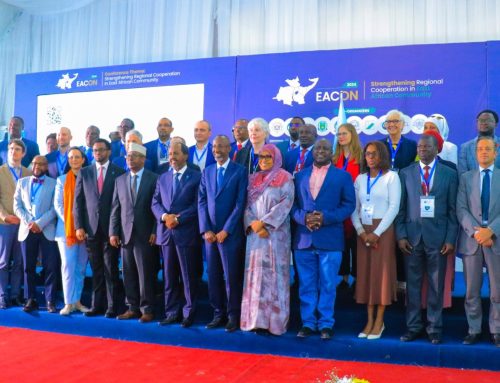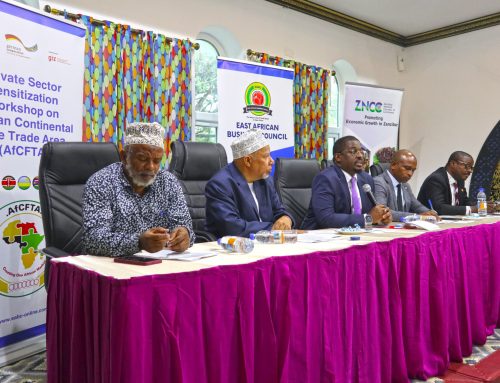On 11th June 2020 the United Republic of Tanzania, Republic of Uganda and the Republic of Kenya released their 2020/21 budgets premised on the theme “Stimulating the Economy to Safeguard Livelihoods, Jobs, Businesses and Industrial Recovery”. The theme aimed at protecting the livelihoods, cushioning vulnerable citizens and businesses against the adverse effects of COVID-19.
Some of the measures outlined in the budgets aimed at stimulating economic activities and to achieve desired economic growth as listed below:
THE UNITED REPUBLIC OF TANZANIA
| S/N | Item/policy area | Measure | Implication |
| 01 | Agriculture | Exemption of VAT on Agricultural Crop Insurance | Reduction of agricultural costs and protection of farmers from unforeseen tragedies |
| 02 | Exporters | Recovery of input tax for exporters of raw materials | Enhancement of competitiveness of products |
| 03 | Employment taxes | An increase in the amount of income not liable for tax | Relief to employees through an increase in the disposable income |
| Reduction of Skills and Development Levy (SDL) from 4.5 to 4% | A decrease in the cost of doing business | ||
| 04 | Financial Sector | Extension of 10% withholding tax on commissions to banks and other digital agents | Increase in the cost of doing business |
| Empowering the Minister to collect and distribute 0.3% levy from telecommunication companies | Reduction of time and cost of compliance | ||
| 05 | Regulatory reform | Removal of 60 fees and Levies from regulatory authorities | Improvement of the business environment |
| 06 | Excise duty on petroleum products | Maintaining the current excise duty rates for non-petroleum products | Building resilience to businesses through stimulating consumption |
| 07 | Manufacturing | Duty remission for imported essential products used for diagnosis, prevention, treatment and management of COVID-19 | Mitigating the impact of COVID-19 in Tanzania |
| Duty Remission at a duty rate of 0 on packaging materials for UHT milk, wine corks, coffee, cashew nuts, cotton, raw materials for baby diapers, equipment and appurtenant used for polishing and heat treatment of Gemstones, RBD Palm Stearin, packaging materials for exported horticulture products and agricultural seeds packaging materials | Promotion of local production and competitiveness of local products | ||
| An increase in duty of tea, ceramic tiles, sacks, roasted coffee, horticultural products and cocoa powder | Promotion of local production and consumption |
THE REPUBLIC OF UGANDA
| S/N | Item/policy area | Measure | Implication |
| Tax Relief to businesses | |||
| 1. | Defer payment of Corporate Income Tax or Presumptive Tax for Corporations and Small, Medium Enterprises (SMEs). | Deferring until September 2020, the payment of any Corporate Income Tax and Presumptive Tax due 1st April 2020 to 30th June 2020, for tax complaint businesses with a turnover of less than UGX. 500 million per annum.
Furthermore, no interest or penalties will accumulate on these amounts during this period. |
Small or Medium Enterprises (SMEs) especially in tourism, manufacturing, horticulture and floriculture will get relief of 3 months to defer payment of income tax to cushion them on the adverse effects of covid19. |
| 2. | Defer payment of PAYE by sectors affected: | Deferring payment until September 2020 of PAYE due from 1st April 2020 to 30th June 2020 for tax compliant Ugandan businesses facing hardships as a result of the COVID-19 pandemic.No interest will accumulate on tax due during this period. An estimated UGX 65.35 billion due from Pay As You Earn (PAYE) for the manufacturing and tourism sectors is being deferred. For the floriculture sector, the expected PAYE deferral is UGX 0.237 billion. | Businesses facing hardships as a result of covid19 have 3 months to defer payment of PAYE. This will ensure they remain afloat. |
| 3. | Waive interest on tax arrears: | The government is going to waive interest and penalties on tax arrears accumulated before 1st July 2020 to lessen the tax liability of businesses that voluntarily comply with their tax obligations. The expected tax relief as a result is UGX 50 billion. | This is meant to lessen the tax liability of businesses hence increase the cashflows. |
| 4. | Tax deductibility of donations for the COVID-19 response | Provide for Tax Deductibility of Donations for the Corona Virus Response.The donations by the private sector towards the Corona Virus Response will not be charged tax. | This will encourage more donations from the private sector and well-wishers towards fighting the pandemic. |
| 5. | Expedite Payment of outstanding VAT refunds: | The Uganda Revenue Authority will speed up payment of outstanding VAT refunds due to businesses accompanied by measures to limit fraud. An additional UGX. 120.53 billion will be refunded. | This will increase cashflows to businesses impacted by covid19 |
| Domestic revenue | |||
| 1. | Digital Tax Stamps | Roll out the use of digital tax stamps and expand the range of products covered in order to deter under-declaration of the production and importation. Digital stamps also ensure that goods on the market meet the required health and safety standards; | This leads to the increased cost of business as it’s the manufacturer who will have to bear the cost of investing additional capital to set up this kind of technology |
| Re-Igniting Business Activity: | |||
| 1. | Credit support to SACCOs | Government to provide credit through SACCOs and Micro Finance Institutions to support micro and small-scale enterprises to a tune of UGX 44 Billion. | MSMEs will have liquidity to reignite their businesses |
| 2. | Capitalizing Uganda Development Bank (UDB) | Increase access to credit at Uganda Development Bank of UGX 1 trillion, 45 billion, to offer low-interest financing to manufacturing, agribusiness and other private sector firms | Manufacturers, agribusiness and other private sectors will be able to borrow at low-interest rates and hence improve their competitiveness |
| 3. | Capitalizing Uganda Development Corporation | Increase funding to Uganda Development Corporation for public-private partnership investments to facilitate our import substitution and export promotion strategy. Government has provided UGX. 100 billion | PPPs will be able to facilitate investments aimed at import substitution and promoting exports |
| 4. | Restructuring of loans | Provide for Banks to restructure loans to their borrowers who are facing liquidity constraints and provide additional liquidity on a case by case basis, as recently guided by the Bank of Uganda | Provision of liquidity to businesses |
| 5. | Mobile money transactions | Reduce charges on mobile banking and mobile money transactions, to improve efficiency, reduce person-to-person contact to prevent the spread of the Corona Virus | This will reduce risks associated with person to person transmission of the COVID-19 |
| 6. | Payment of arrears to private sector firms | Expedite the payment of arrears owed by Government to private sector firms commencing July 2020. The government has provided UGX 673 billion. Priority will be given to Small and Medium Enterprises, cooperative societies and contractors. | Address liquidity constraints faced by suppliers of Government for purposes of business continuity and retaining of jobs |
THE REPUBLIC OF KENYA
| S/N | Item/Policy Area | Measure | Implication |
| Economic Stimulus Programme | |||
| 01 | Infrastructure | Allocation of Ksh5 billion for the rehabilitation of the damaged access roads and footbridges | Stimulation of the economy |
| Allocation of Ksh 10 billion under the “Kazi Mtaani Programme” | Creation of employment for 200,000 youths | ||
| 02 | Education | Allocation of Ksh 7.4 billion to employ teachers | Creation of employment for teachers |
| 03 | Micro, Small and Medium Enterprises (SMEs) | Allocation of Ksh 3 billion as seed capital for a Credit Guarantee Scheme | Provision of affordable credit to SMEs |
| Allocation of Ksh 10 billion for VAT refund claims | Enhancing liquidity of SMEs | ||
| 04 | Health Outcomes | Allocation of 1.2 billion to recruit an additional cohort of 5,000 health workers | Mitigating the impact of COVID-19 |
| Allocation of Ksh 500 million in the supply of 20,000 locally made beds and beddings to public hospitals | Improvement of the health care system | ||
| 05 | Agriculture | Allocation of Ksh 3 billion to subsidize the supply of farm inputs | Enhancing food security |
| Allocation of Ksh 3.4 billion for expanded community household irrigation | Cushioning farmers from the adverse effects of weather and securing the food supply chain | ||
| Allocation of Ksh 1.5 billion to assist flower and horticultural farmers in accessing international markets | Sustaining the farming Communities and employment of workers in the agriculture sector | ||
| 06 | Tourism | Allocation of Ksh 3 billion for Tourism FinanceCorporation | Cushioning tourism businesses from the effects of COVID-19 |
| Allocation of Ksh 2 billion to provide grants to 160 community conservancies and support to Kenya Wildlife Services to engage 5,000 community scouts | Stimulation of the tourism sector | ||
| 07 | Environment, Water and Sanitation Facilities | Allocation of Ksh 1.0 billion to support flood control using local labour | Creation of employment |
| Allocation of Ksh 850 million to cater for the rehabilitation of wells, water pans and underground tanks in ASAL areas using local labour | Creation of employment | ||
| Allocation of Ksh 540 million to enhance tree planting programmes across the country using locally sourced seedlings | Creation of employment | ||
| 08 | Manufacturing | Allocation of Ksh 600 million to purchase locally assembled vehicles | Safeguarding jobs provided by local motor vehicle manufacturers |
| Allocation of Ksh 712 million to provide credit targeted to MSMEs in the manufacturing sector | Sustaining operations of SMEs in the manufacturing sector | ||
| S/N | Item/Policy area | Measure | Implication |
| Tax Measures | |||
| 01 | Metal and allied sector | Stay of application of EAC CET and applying an import duty rate of 35% for iron & steel products for one- year | Promotion of local production and consumption |
| 02 | Paper and paper board products | Stay of application on EAC CET and applying an import duty rate of 25 percent for another one-year | Protection of local manufacturers of these products against cheap imports |
| 03 | Baby diapers | All inputs for the manufacture of baby diapers will be imported duty-free under the East African Community Duty Remission Scheme | Supporting local manufacturing of baby diapers |
| 04 | Textile and Apparel Sector | Inputs used in the textile and apparel sector will be imported duty-free under the East African Community Duty Remission Scheme. | Promotion of local production of clothing and apparels including fashion and design |
| 07 | Telecommunication sector | Inputs for assembly or manufacture of mobile phones will be imported duty-free under the East African Community Duty Remission Scheme. | Stirring growth in telecommunication sector and promotion of local investments |
| 08 | Leather and footwear sector | Maintaining the specific rates of duty in addition to 25% (percent) duty rate, which was granted last year | Protection of the sector against cheap imported products |
| 09 | Electrical parts and accessories | Stay of application of EAC CET and applying the import duty rate of 35 percent instead of 25 percent on such products for one year | Protection of local producers against cheap imports of electrical parts and accessories |
| 10 | Masks, sanitizers, ventilators and personal protective equipment | Grant duty remission on raw materials and inputs for the manufacture of masks, sanitizers, ventilators and personal protective equipment including coveralls and face shield | Promotion of local production of essential products |
| 11 | Rental Income Tax | Raising the threshold for individuals earning rental income from Ksh 10 million and below, to Ksh 15 million per annum who are subject to 10% rental income tax | Widening the tax base |
| 12 | All companies | Introduction of a minimum tax payable by all companies at the rate of 1% of their gross turnover. | Increase in the cost of doing business |
| 13 | Digital platforms | Introduction of digital service tax on the value of transactions at the rate of 1.5 percent | Widening the tax base |
| 14 | Maize or corn seeds | Exemption of maize or corn seeds from the Value Added Tax (VAT) | Improving the competitiveness of the products |
| 15 | Ambulance services | Exemption of ambulance services from VAT | Reducing the cost of such services |
| 16 | Import Declaration Fee and Railway Development Levy | Exemption from both the Import Declaration Fee and Railway Development Levy on all goods, including materials, supplies, equipment, machinery and motor vehicles imported for the official use by the Kenya Defense Forces and the National Police Service. | Preserve budgetary allocations of these institutions |
Note:
The Republic of Burundi, the Republic of Rwanda and the Republic of South Sudan did not read their budgets.





